|
|
|
|
Nau mai haere mai and welcome to your newsletter.
Sadly, the release last week of a UNICEF report into the well-being of children came as little surprise to anyone who has followed the main indicators over the past decades. New Zealand was ranked 35th out of the 41 rich countries surveyed, with childhood obesity, youth suicide, poor educational outcomes and income inequality all contributing to that dismal result.
Furthermore, despite being signatory to various international treaties and agreements on children’s rights, New Zealand’s domestic law doesn’t make those rights explicit. But, as professor of law Clair Breen argues, by extending the legal definition of age discrimination we might at least move towards upholding those rights in practice as well as in theory.
Fellow legal expert Alexander Gillespie tackles the pending referendum on the legalisation and control of cannabis, concluding that a simple cost-benefit analysis shows the past decades of prohibition have done more harm to society than good. While we can never avoid harm altogether, he writes, we can certainly regulate the supply and quality of cannabis to achieve better results than we have so far, and reduce the criminal black market in the
process.
There’s plenty more to read here and on our homepage - including a sobering report on the impact of COVID-19 on Māori, and a fascinating analysis of why Prime Minister Jacinda Ardern is such an adept communicator for the social media age.
Till next time, ngā mihi nui ki a koutou katoa.
|
Finlay Macdonald
New Zealand Editor: Politics, Business + Arts
|

|
|
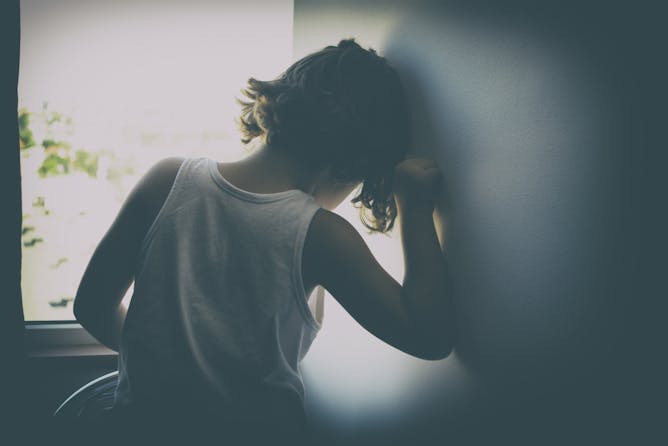
Shutterstock
Claire Breen, University of Waikato
With UNICEF ranking New Zealand 35th out of 41 rich countries for children’s well-being, the gap between rhetoric and reality is wider than ever.
|
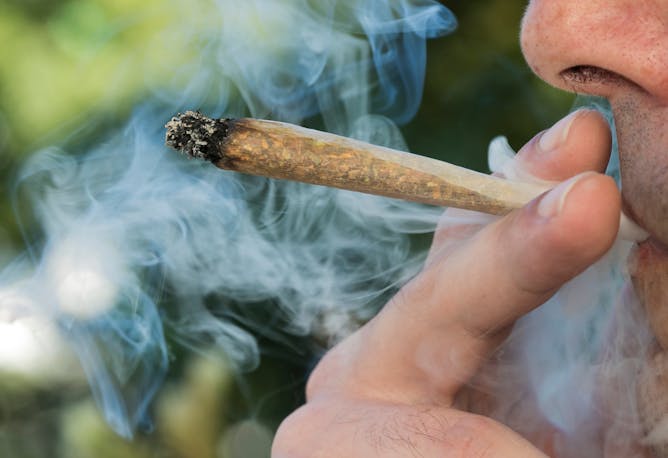
Shutterstock
Alexander Gillespie, University of Waikato
Around 75,000 New Zealanders have been sentenced for a cannabis-related offence since 1975. With the drug more popular than ever, is it time we let the evidence guide our decisions?
|

Shutterstock/Chris Hellyar
Cassandra Mudgway, Auckland University of Technology
A cultural change is needed in the defence force to break the "code of silence" that still exists about sexual abuse and harassment in the ranks.
|
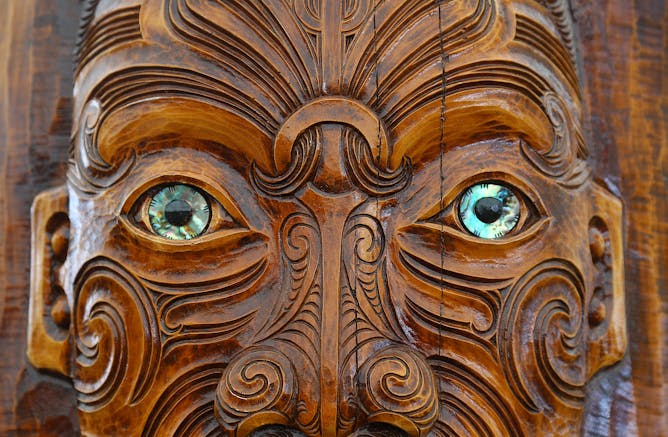
Shutterstock/Init1alP
Michael Plank, University of Canterbury; Andrew Sporle; Kate Hannah; Melissa McLeod, University of Otago; Nicholas Steyn
Māori are historically at greater risk of severe illness and death during pandemics. New research shows they are at least 50% more likely to die from COVID-19 than other New Zealanders.
|
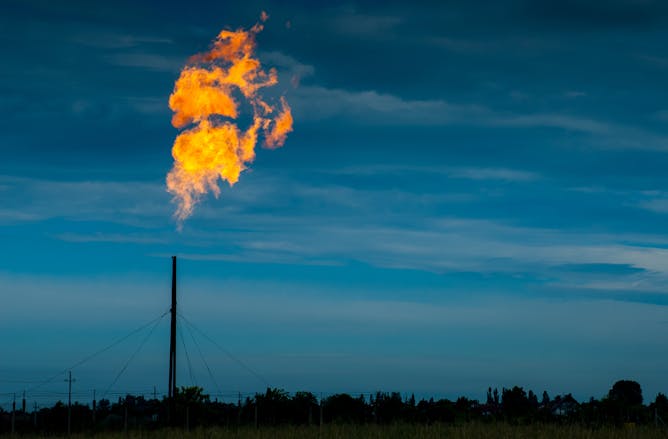
Shutterstock/effective stock photos
Zebedee Nicholls, University of Melbourne; Tim Baxter, University of Melbourne
Methane is a live-fast, die-young greenhouse gas but its impact on the climate can last for hundreds or even thousands of years
|

GettyImages
Sommer Kapitan, Auckland University of Technology
Jacinda Ardern's command of social media and her celebrity-level engagement rates make her a formidable campaigner in the digital age.
|
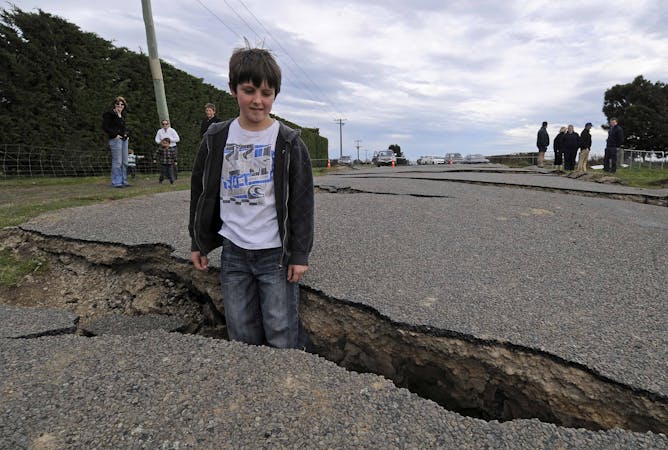
David Wethey /NZPA/AAP
Mark Quigley, University of Melbourne
We might not be able to predict the next big earthquake, but we can make sure we're ready for it and understand the risks.
|

Shutterstocl/Hryshchyshen Serhii
Matthew Hobbs, University of Canterbury
Tooth decay remains the most widespread chronic and irreversible disease in New Zealand, but 6-7% of all children and adults use a non-fluoride toothpaste.
|

Shutterstock/eggeegg
Rita Krishnamurthi, Auckland University of Technology
Stroke is New Zealand's third highest cause of death, but few people recognise its symptoms and risk factors, particularly in Pasifika and Māori communities where stroke affects more people.
|
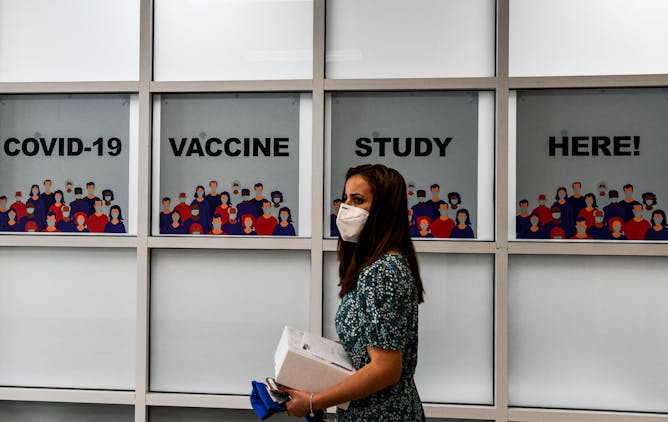
Chandan Khanna/AFP via Getty Images
Jagadish Thaker, Massey University
Clear messages from experts helped New Zealand to contain COVID-19 outbreaks. The same is now necessary to counter vaccine misinformation and to build public trust in vaccination.
|
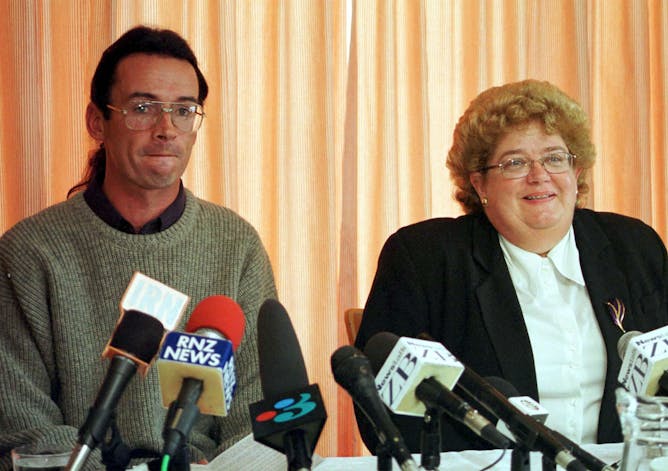
Peter Ellis with his then lawyer, Judith Ablett-Kerr, after his release from prison in 2000.
GettyImages
Kris Gledhill, Auckland University of Technology
The latest decision in the Civic Creche case highlights a gap in the Criminal Cases Review Commission's ability to look at appeals from beyond the grave.
|
From our international editions
|

Joshua Gans, University of Toronto
The modelling assumes infections are fairly evenly distributed. They are not. It ought to be possible to reopen low-infection postcodes first.
| |

Mitchell P. Jones, Vienna University of Technology
Going from a single spore to a finished fungi-derived leather product takes a couple of weeks. But raising a cow to maturity for bovine leather can take several years.
|

Adam Kamradt-Scott, University of Sydney
More than 170 countries have signed up to the Global Access (COVAX) initiative, but vaccine hoarding has already begun by many wealthy countries — leaving poorer nations potentially in the lurch.
| |
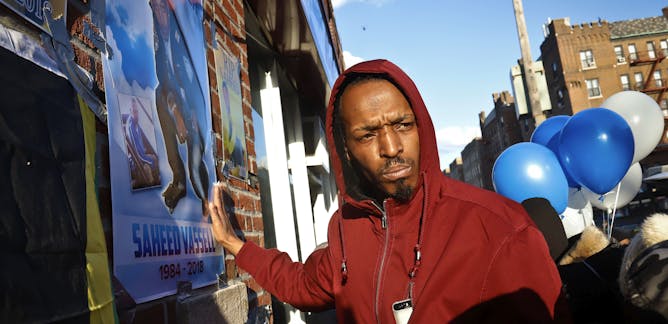
Jennifer Sarrett, Emory University
Police are almost always the first responders in cases of mental health crisis. Too often these encounters turn bad, even deadly. But police were never meant to be in charge of US mental health care.
|
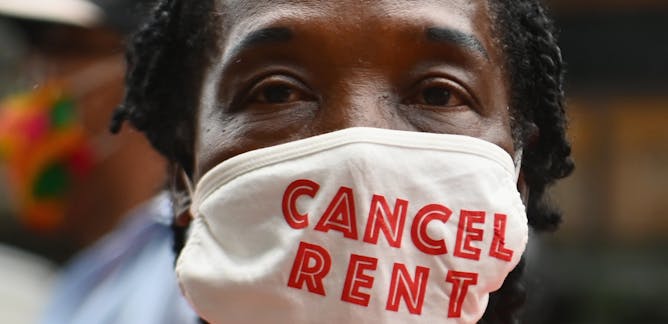
Katy Ramsey Mason, University of Memphis
The CDC's sweeping eviction moratorium leaves more questions than answers – as well as concerns that it merely pushes the problem into winter.
| |

Kaweh Kerami, SOAS, University of London
After months of delays, talks between the Taliban and Afghan governnment are due to start in Doha. Here's what is on the table.
|

Clifton van der Linden, McMaster University
Results from a recent study indicate that the emergency measures put in place in response to COVID-19 have disproportionately impacted Canadian mothers with young children at home.
| |

Tareq Yousef, Dalhousie University
Some health products haven't been tested for the benefits that they claim to produce. Blue-light blocking lenses are promoted as helping sleep cycles, but there is no evidence to support this.
|
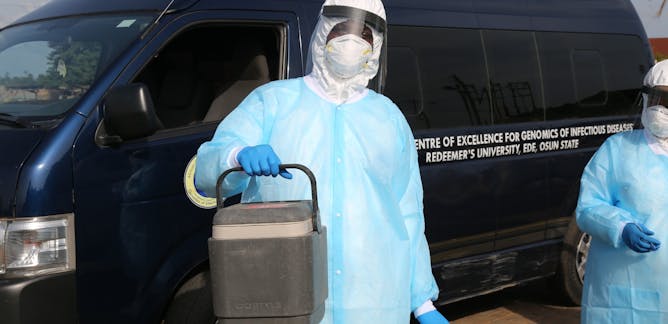
Christian Happi, Redeemer's University
There are over 1,000 lineages of SARS-CoV-2 circulating around the world. Nigerian scientists have found seven in the country and this is important.
| |
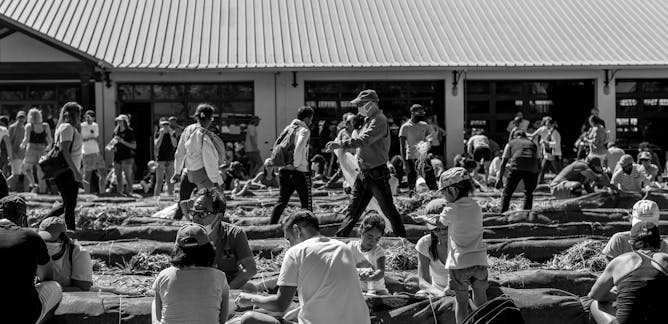
Rosabelle Boswell, Nelson Mandela University
Mauritius' oil spill highlights the plight of impoverished communities that live along the coastline.
|
|
|
| |
| |
| |
| |
| |
| |
|
|
|
|
|
|
|